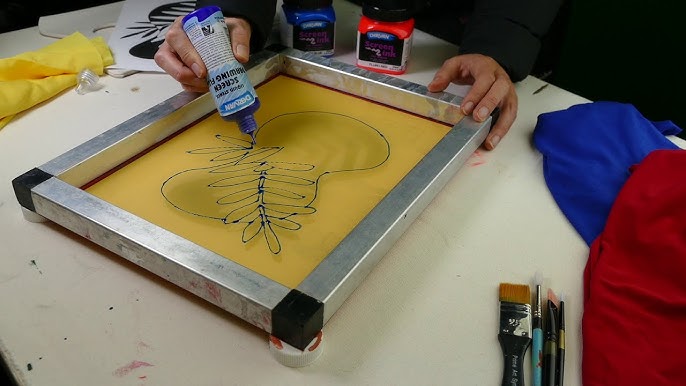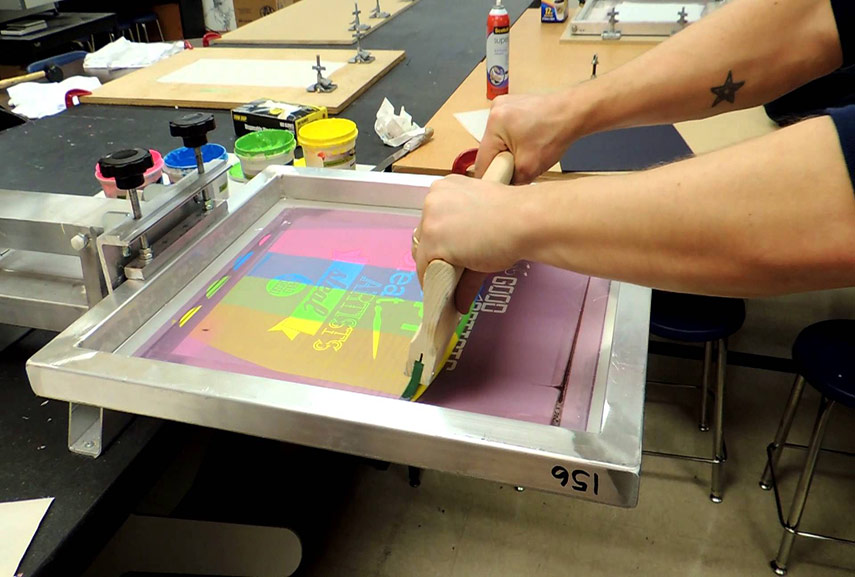ChatGPT said: What customers are saying in 10:9 Design reviews: feedback you should read
The Important Overview to Understanding Screen Printing and Its Versatile Utilizes
Screen printing has an abundant history that goes back to ancient times, progressing right into a sophisticated method used across numerous industries today. This guide checks out the intricacies of the screen printing process, describing its applications in advertising, home, and style décor - 10:9 Design Company. Comprehending these principles can open up innovative capacity for both business and imaginative jobs. The adhering to areas will certainly expose crucial tips and methods to improve one's screen printing ventures
The Background of Screen Printing
Although screen printing has origins that trace back centuries, its development reflects the technical and imaginative improvements of different cultures. Coming from old China, the method was initially used for decorating textiles and later infect Japan, where it came to be indispensable to Ukiyo-e woodblock printing. The approach moved to Europe in the 18th century, where it acquired popularity among craftsmens and business printers. The development of image solution in the 20th century reinvented screen printing, allowing for even more complex styles and better efficiency. Musicians like Andy Warhol further pushed its popularity, utilizing the medium to produce famous works that mixed commercialism and fine art. By the late 20th century, screen printing had actually established itself as a flexible technique, utilized in vogue, marketing, and art. Today, it continues to evolve, integrating electronic technology and increasing its applications across different industries.
The Screen Printing Process Explained
Screen printing changes artistic visions right into substantial styles via a series of exact actions. Initially, a picture is created and after that moved onto a screen, commonly made of fine mesh material extended over a framework. A light-sensitive solution is related to the screen, which is exposed to light, solidifying in areas not covered by the picture. After cleaning out the unhardened emulsion, a stencil is developed.
Next off, the screen is put over the substratum, whether it be textile, paper, or another product. Ink is after that pressed via the open locations of the pattern using a squeegee, depositing the layout onto the substrate below. This procedure can be duplicated for numerous shades, calling for different screens for each tone. Ultimately, the printed thing is cured utilizing warm to ensure the ink adheres effectively, causing a long lasting, vibrant design ready for usage.
Kinds of Screen Printing Techniques

Furthermore, specialty strategies, such as discharge screen printing, get rid of color from the material to create softer prints, while foil screen printing uses metallic foil to attain a shiny finish (10:9 Design Embroidery). Each strategy provides distinct attributes, accommodating various imaginative requirements and production ranges, ultimately increasing the opportunities within the screen printing domain
Applications of Screen Printing in Numerous Industries

Furthermore, the signage and advertising and marketing sectors use screen printing for producing eye-catching screens and banners. This approach permits strong shades and elaborate designs that capture focus. In electronics, screen printing is utilized for using conductive inks to motherboard, important for part links. The home style sector welcomes screen printing to generate distinct layouts on textiles and wall surface art. On the whole, screen printing acts as a crucial tool across diverse fields, boosting products with personalized and visually appealing graphics.
Tips for Effective Screen Printing Projects
While undertaking a screen printing project, careful focus to information can considerably enhance the last end result. Initially, choosing top notch products is important; this includes the screen, inks, and substrates. Utilizing ideal mesh matters can impact ink deposition and detail resolution. Prep work is similarly essential; comprehensive cleaning of screens and proper direct exposure times ensure crisp prints.
Next, exact enrollment is vital for multi-color prints. Utilizing placement devices can assist accomplish precise layering. Additionally, screening prints on scrap materials before production assists identify possible problems without squandering sources.

Regularly Asked Concerns
What Products Are Finest for Screen Printing on Textile?
Cotton and polyester blends are perfect for screen printing on fabric because of their resilience and ink absorption. In addition, specialty textiles like silk or canvas can produce special textures and surfaces, enhancing the total design high quality.
How Do I Clean and Maintain Screen Printing Tools?
To keep and cleanse screen printing devices, one should routinely clean displays with suitable solvents, check mops for wear, lubricate moving parts, and shop all things in a completely dry, dust-free environment to extend their life-span.
What Are the Environmental Impacts of Screen Printing?
Screen printing can have considerable ecological influences, consisting of chemical waste from inks and solvents, water usage throughout cleansing procedures, and power usage. Lasting techniques and green products are crucial for decreasing these negative effects.
Can Screen Printing Be Done in your home Efficiently?
Screen printing can be successfully done at home with the appropriate products and methods. Enthusiasts can develop quality prints, though success relies on their ability level, devices, and understanding of the procedure involved.
What Are the Prices Associated With Starting a Screen Printing Business?

Beginning a screen printing company involves prices for tools, materials, and office. First costs usually range from a couple of hundred to several thousand bucks, website depending upon the scale, top quality of machinery, and desired manufacturing capacity.
Screen printing has a rich background that dates back to old times, advancing into a sophisticated method used throughout various markets today. Another method, rotating screen printing, utilizes round screens, promoting constant printing on textile rolls, consequently enhancing effectiveness for massive manufacturings. Furthermore, specialized techniques, such as discharge screen printing, eliminate color from the fabric to produce softer prints, while foil screen printing applies metallic aluminum foil to attain a shiny surface. In the style field, screen printing is commonly made use of to create dynamic designs on clothing, enabling brands to showcase their special designs. Cotton and polyester blends are optimal for screen printing on textile due to their resilience and ink absorption.